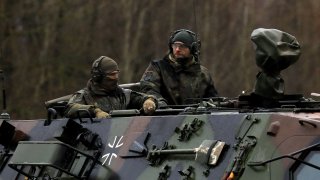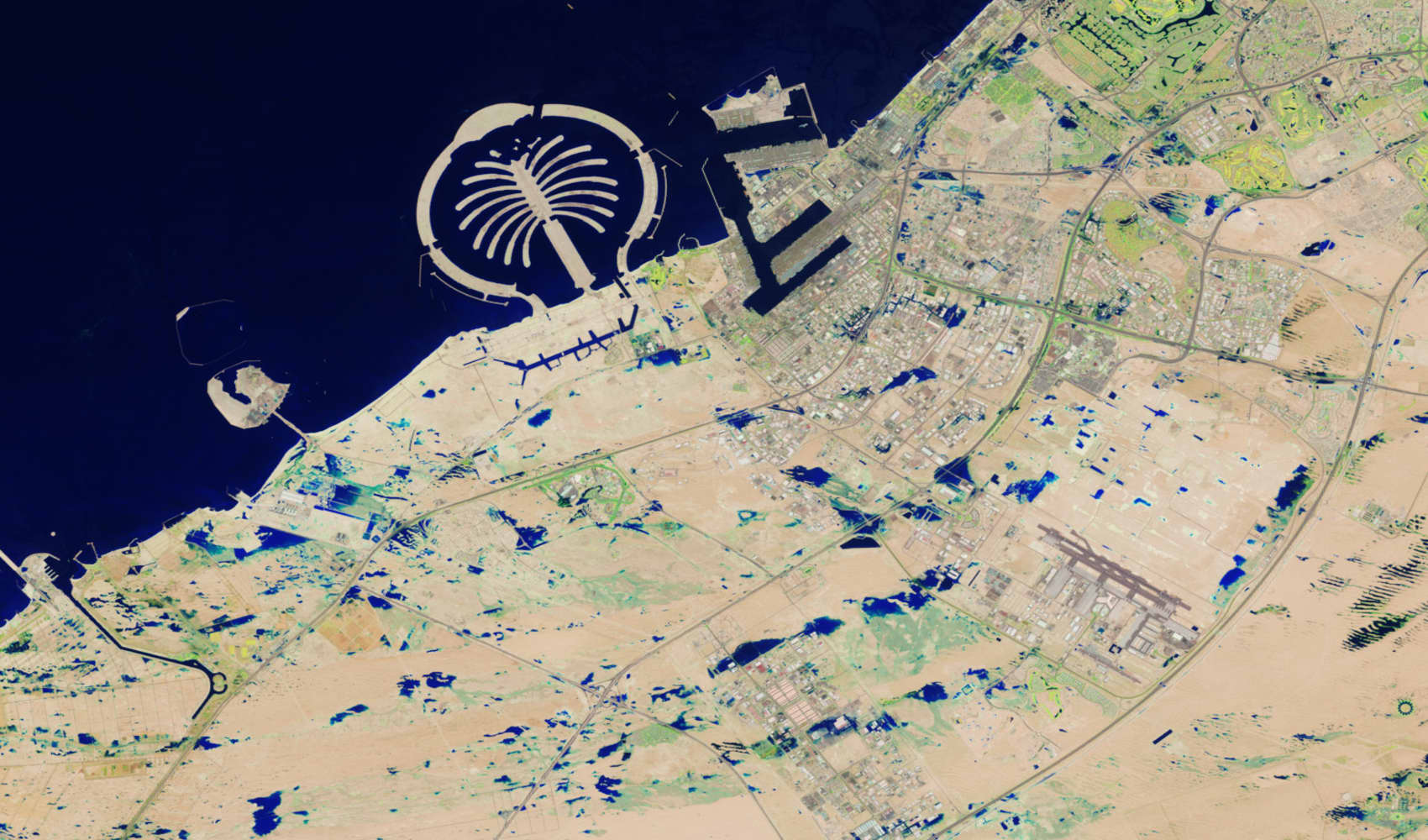
- Tensions are rising in Europe's ex-Soviet Baltic nations that President Vladimir Putin might not stop at invading Ukraine, and could have his sights set on them.
- Baltic states in north-eastern Europe, which are now members of the EU and NATO, were invaded and occupied in June 1940 by the Soviet Union. They remained within the USSR until its collapse in 1991.
- "Clearly Putin is now in some kind of aggressive war mood," European Commission Vice President Valdis Dombrovskis said.
Tensions are rising in Europe's ex-Soviet Baltic nations that President Vladimir Putin might not stop at invading Ukraine, and could have his sights set on them.
Lithuania, Latvia and Estonia — the Baltic countries located in north-eastern Europe — are now members of the EU and NATO. However, in June 1940 they were invaded and occupied by the Soviet Union and after World War II were a part of the USSR until its collapse in 1991 when they regained their independence.
Today, it's estimated that a million ethnic Russians still live in the Baltics. That is a worry for the region, as Putin's pretext for an invasion of Ukraine was the "protecting" of ethnic Russians the country's east — a justification widely questioned and dismissed by many experts on the region.
Get New England news, weather forecasts and entertainment stories to your inbox. Sign up for NECN newsletters.
Many analysts perceive Putin's invasion of Ukraine as an attempt to rebuild Russia's lost Soviet empire, the destruction of which Putin once described as "the greatest geopolitical catastrophe of the 20th century."
Russia has also sought to bring other former Soviet republics into its sphere of influence, including Belarus and Georgia to its north and Moldova to its south, with varying degrees of success. There have been a number of anti-government protests in these countries over the years, most notably Ukraine's pro-democracy revolutions in 2004 and 2013.
Money Report
Now, there are concerns in the Baltic states that Russia, having invaded one former Soviet territory, could go further and launch an assault on them.
European Commission Vice President Valdis Dombrovskis warned Monday that the EU had to take the Russian threat seriously.
"If we do not support Ukraine, it's not going to stop in Ukraine. Clearly Putin is now in some kind of aggressive war mood and unfortunately it is likely that this aggression will continue in other countries," he said in an interview with Politico published Monday evening.
In an apparent effort to reassure the region, U.S. Secretary of State Antony Blinken started a two-day tour of the Baltics on Monday, visiting Lithuania and Latvia Monday and Estonia Tuesday.
Lithuanian President Gitanas Nauseda appeared to press Blinken for more collective NATO action when speaking at a joint press conference, saying that "deterrence is no longer enough, and we need more defense here ... because otherwise it will be too late here, Mr. Secretary. Putin will not stop in Ukraine; he will not stop."
And the country's Foreign Minister Gabrielius Landsbergis said the West had a "collective duty and obligation" to help Ukraine, adding: "If you want to avoid the third world war. The choice is in our hands."
Blinken responded by insisting that "the United States, with all allies and partners, will defend every – every inch of NATO territory should it come under attack, and there should be no doubt about that on anyone's mind."
But he stressed that NATO has no aggressive intent and will not seek out conflict.
Second Cold War?
Latvia's Foreign Minister Edgars Rinkevics told CNBC Tuesday that he had been reassured by Blinken's visit. He welcomed the pledges for practical support, such as additional U.S. troops in the region and discussions on bolstering its defenses.
"One really important thing is that there are not only political statements but also already practical things," he told "Squawk Box Europe." "I feel the U.S. support very much."
In a press conference Monday, Rinkevics said that public opinion and policymakers' decision-making had shifted with regards to military deployments, noting that now "we need a permanent stationing of NATO troops, including U.S. troops, on our soil" — something he had called for before Russia's invasion of Ukraine.
On the day Russia invaded Ukraine (Feb. 24), Biden ordered the deployment of an additional 7,000 U.S. troops to Europe, and moved forces already in Europe to NATO's eastern flank, including to Latvia.
When asked if he was worried that Russia could cite the protection of ethnic Russians as a pretext for further invasions, Rinkevics said there was a "huge difference" between Ukraine and the Baltics, as they are part of NATO and the EU.
"If you look at the composition of Latvia, there are no such territories that are hugely Russian-populated," he said. "Yes, there is a Russian minority, but there is a shift in the Russian-speaking population as we speak."
Nonetheless, Rinkevics said he feared that a second Cold War was emerging, with a schism growing between the West and Russia, and countries within its sphere of influence. "The Iron Curtain is now falling, Russia is disconnecting itself from the Western world ... I think we're in a very long situation here."
'Aggressive war mood'
Even though the Baltic states have been a part of NATO and the EU since 2004, with all three using the euro as their currency, their geographic location makes them vulnerable. Like Ukraine, they all share a border with Russia. Latvia and Lithuania also share a border with Russia's ally Belarus, which is widely believed to be supporting Russia in its invasion of Ukraine.
Krista Viksnins, program assistant with the Transatlantic Defense and Security Program at the Center for European Policy Analysis, commented in an editorial last week that the Baltics had good reason to be concerned.
"All three [Baltic countries] have successfully reintegrated into Europe. Yet they are now at risk and must be among the West's top priorities — Russia has demonstrated its desire to make Ukraine a vassal state through full-scale military action and may not stop its bloody campaigns," Viksnins wrote.
"Just as Vladimir Putin issued blood-curdling threats to Ukraine before his unprovoked assault, so too he has menaced the Baltic states."
It's an issue also raised by the European Commission's Dombrovskis in his Monday interview.
"If you look at escalating Russia's aggressive rhetoric and even statements claiming Russia supporting Belarusian interests in having access to Baltic Sea, and the increasing anti-Baltic rhetoric — well in Ukraine, it also started with increasing anti-Ukrainian rhetoric," he added.
The Western officials all agree: Ukraine must be helped in its war against Russia.
The West should support Ukraine in "any way we can," Latvia's Foreign Minister Rinkevics said, while Lithuanian Foreign Minister Gabrielius Landsbergis told CNBC Monday that "any country that has means, should be providing what it can."






